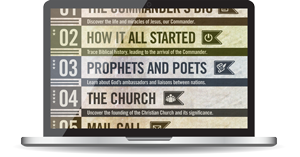Jacob & Rachel: Marrying into a Family
Week Summary
How can you help foster a supportive relationship with your extended family?
They say you do not just marry a person, you marry a family—and the customs, behaviors, and attitudes within that family. Jacob encountered extended-family issues when he married Rachel, and God used his willingness to work hard to refine his character. Together, we learn from Jacob and Rachel to celebrate differences as strengths to value what each brings into a marriage.
About This Journey
God says that it is not good for man to be alone. Life is better with the buddy system—in the Military and especially in marriage. It gives us a greater reward for our work, someone to help us when we fall, and a shoulder to rest on. In “Devoted to My Husband”, we journey with six women through intimacy, trust, communication, healthy boundaries, generosity, and teamwork.
This Week's Readings
Jacob & Rachel: Marrying into a Family
Read
Then Jacob went on his journey and came to the land of the people of the east.
-Genesis 29:1Reflect
As we saw, with the help of his mother, Jacob tricked his father Isaac out of the blessing that rightfully belonged to his older brother Esau. In fear of retribution from Esau and at his mother’s suggestion, Jacob fled to the land of his uncle Laban. There he encountered the beautiful Rachel and fell hopelessly in love with her. The story has the feel of a Hollywood movie, complete with a show of strength from the leading man, long arduous glances, a kiss, and even tears. It is quite a moving story—until Rachel’s dad inserts himself.
They say you do not just marry a person, you marry a family. The truth is, you marry into a family and you have to deal with the customs, behaviors, and attitudes embedded in that family. You have to take the family’s claims on your spouse into consideration. In Jacob’s case, his greedy future father-in-law’s claim on Rachel frustrated Jacob’s immediate marriage plans. Laban agreed to allow Jacob to marry Rachel, but he did not keep his word. Instead he tricked Jacob into first marrying his daughter Leah. Though Laban then allowed Jacob to marry Rachel, he required an additional seven years of work. Do not miss the detail that Laban was Jacob’s uncle. His sharp dealings give an indication of his character; he shows a pattern more like an oppressive lord over a contracted servant rather than a supportive uncle helping a relative. Yes, Jacob ran headlong into in-law problems from the moment he met Rachel.
On the one hand, you might say that with Laban Jacob met his match and got some of his just desserts for his selfish actions with his own family. On the other hand, you can see through Jacob’s willingness to work hard and fulfill a contract that God used this situation to refine his character.
Western culture does not practice attaching a dollar amount to a spouse anymore, but families still exert a sense of “ownership” that couples must take into consideration. No couple is immune from challenges that arise from their family-of-origin experiences. Each couple must learn to celebrate the differences and turn them into strengths as you value what each brings into a marriage.
Respond
What challenges have you experienced with in-laws because of military life? What joys have you experienced with in-laws because of military life?
Prayer
Lord, thank you for my in-laws. If not for them, I would not know my husband. I pray your blessings upon them. Help us to have a good and positive relationship of mutual support. Amen.
Obey vs. Honor
Read
So Jacob served seven years for Rachel, and they seemed to him but a few days because of the love he had for her...
-Genesis 29:20Then Jacob said to Laban, “Give me my wife that I may go in to her, for my time is completed.” So Laban gathered together all the people of the place and made a feast. But in the evening he took his daughter Leah and brought her to Jacob, and he went in to her. (Laban gave his female servant Zilpah to his daughter Leah to be her servant.) And in the morning, behold, it was Leah! And Jacob said to Laban, “What is this you have done to me? Did I not serve with you for Rachel? Why then have you deceived me?”
-Genesis 29:21-25Reflect
If the requirement of working seven years to marry Rachel does not give Laban a place on the list for most awful father-in-law ever, his next move seals the deal. The seven years Jacob worked for Rachel’s hand in marriage seemed to him just a few days because of his love for her. The day of the wedding arrived, but instead of joy in uniting with his beloved Rachel, Jacob was devastated when he discovered Laban had tricked him into marrying her older sister Leah. Laban gave his permission for Jacob to marry Rachel after a week, but only following another agreement to work for him another seven years! Even with polygamy an accepted practice in the ancient Near East, this was unacceptable.
In-law jokes abound, but there is no humor in a poor relationship with your in-laws. Such a relationship can be an ongoing source of conflict. In Jacob’s case the conflict with his oppressive father-in-law lasted twenty years. Laban demonstrated his dependence on Jacob for his own prosperity—he manipulated him to get rich. Another term for this type of dependence is enmeshment.
In an enmeshed family system, parents are dependent on their children to make them feel fulfilled. Laban’s conniving and controlling behavior is a clear symptom of enmeshment. He involved Jacob, Rachel, and Leah in a difficult situation that was almost impossible to escape.
The expectations placed on all members of a family following a marriage can be unrealistic and overwhelming. Kay recalls feeling threatened and intimidated by her strong-willed mother-in-law. Her husband offered wise advice early in their marriage: “Listen to my mother, and then do what you think you should do.” Scripture tells us that we are to obey our parents, but obey transitions to honor when a couple marries.
In their book Loving Your Relatives, David and Claudia Arp suggest ways to navigate the often complicated in-law relationship:
- Be proactive and look for ways to connect.
- Don’t compete with other family members.
- Refocus your perspective by looking for the positive.
- Accept reality.
Respond
What kind of relationship do you have with your in-laws? Even if you have a good relationship, there is always room for improvement. What is one thing you can do today to connect positively with your in-laws?
Prayer
Lord, help my husband and me to find creative ways to connect with our parents. Help us to honor our parents even when we do not agree with them. Amen.
The Brady Bunch Does Not Live Here
Read
When Rachel saw that she bore Jacob no children, she envied her sister. She said to Jacob, “Give me children, or I shall die!” Jacob’s anger was kindled against Rachel, and he said, “Am I in the place of God, who has withheld from you the fruit of the womb?”
-Genesis 30:1-2Reflect
In-law problems were not the only problems Jacob encountered in marriage. Now he had not only one wife, but two—two sisters who brought their own baggage into the complicated relationship. No, this is not an episode of Sister-Wives, but the ancient day equivalent of a blended family.
The Pew Research Center reports that there are more blended families today than in any other time in history. Nearly half of young people ages 18 to 29 have a stepsibling. Cru Military believes the number of blended families in the military far exceeds the ratio in the general population. Blending a family is a challenge, and military life adds additional factors to that challenge. Cru’s Ron Deal says that the average stepfamily needs five to seven years to develop a family identity. Military families may see this timeframe extended due to the absence of a parent through deployment, training, or operations tempo. Deal suggests a new blended military family “step down” their expectations and be patient as they adjust to the new situation.
The configuration of a blended family varies as do the challenges. The old “Brady Bunch” scenario is not the norm for such families. Before the new family settles in together the common state of affairs includes power struggles, boundary testing, and guilt. In the case of Jacob, Rachel, and Leah, the situation brought jealousy and drama. Rachel and Leah worked against each other in their effort to be the favored wife. Their competition for social standing through bearing children brought disgrace to Jacob and planted seeds of tribalism that would be evident through their children.
Yet, through all the deception, drama, competition, jealousy, and blame, God worked his plan. Theologian Walter Brueggemann describes the scene: “… two competitive sisters, a husband caught between them, and an exploitative father-in-law are not the most likely data for narratives of faith.” Indeed. Yet God did use these fallen and fallible people. God blessed this blended family with twelve sons through whom God fulfilled his promise to Abraham to establish a great nation from his heirs.
Respond
You may be a member of a blended family. If so, what have been your unique challenges to adjust to military life? Consider a blended military family you know. How can you bless them today?
Prayer
Lord, I pray your blessings on the family I just identified, and all blended military families. You know the unique challenges they face. Help them as they navigate their way to becoming a united and strong family unit. Amen.
United We Stand
Read
So Jacob sent and called Rachel and Leah into the field where his flock was and said to them, “I see that your father does not regard me with favor as he did before. But the God of my father has been with me. You know that I have served your father with all my strength, yet your father has cheated me and changed my wages ten times. But God did not permit him to harm me.
-Genesis 31:4-7Then Rachel and Leah answered and said to him, “Is there any portion or inheritance left to us in our father’s house? Are we not regarded by him as foreigners? For he has sold us, and he has indeed devoured our money. All the wealth that God has taken away from our father belongs to us and to our children. Now then, whatever God has said to you, do.”
-Genesis 31:14-16Reflect
Rachel and Leah took initiative to change their situation. Jacob called a family meeting and—perhaps surprisingly—these three had a calm discussion about their future. They created a united front against Laban and his injustice. Together they conversed as partners, made a decision, and stood in solidarity concerning their next move. They united in purpose, voice, and action as they decided to leave Laban and move to Canaan.
Family challenges have the potential to create closeness or bring division. Early in his marriage, Steven felt compelled to connect with his parents about the challenging issues he faced as a husband. His parents were good and godly people but did not at first recognize the danger in Steven’s dependence upon them. They convinced themselves that their discussions were “wise counsel.” When Steven’s wife realized these discussions were going on without her, she felt justifiably threatened.
Steven’s mom recalls the night she received a call from her son. “He told us he felt convicted for coming to us and in essence complaining about his wife. He said he needed to practice working things out with his wife instead of griping to us about her. I felt sad and happy at the same time. Sad that our connection with him would change, but happy and proud that the change would be a healthy move toward my son cherishing his wife and becoming more united as a couple.”
Steven’s mom reports that her son and his wife continue to have challenges, but now they work together to resolve their issues and have become closer as a result. No family is immune to challenges, but we can look at every challenge as an opportunity to grow closer, and every difficulty as an opportunity to stand united.
Respond
How united is the front in your home? Is there something you need to do in order to stand united?
Prayer
Lord, I pray you would allow my husband and me to stand united in purpose, voice, and action. May we be at peace as we share decision making. Help us to work together, lean on each other, and seek your will when we face challenges and difficulties. Amen.
Setting Boundaries
Read
Come now, let us make a covenant, you and I. And let it be a witness between you and me.” So Jacob took a stone and set it up as a pillar. And Jacob said to his kinsmen, “Gather stones.” And they took stones and made a heap, and they ate there by the heap. Laban called it Jegar-sahadutha, but Jacob called it Galeed. Laban said, “This heap is a witness between you and me today.” Therefore he named it Galeed, and Mizpah, for he said, “The Lord watch between you and me, when we are out of one another’s sight.
-Genesis 31:44-49Early in the morning Laban arose and kissed his grandchildren and his daughters and blessed them. Then Laban departed and returned home.
-Genesis 31:55Reflect
Jacob and his wives departed secretly for Canaan (Genesis 31:17–21). When Laban discovered they were gone, he was furious. He determined to find his daughters and that scoundrel of a son-in-law, and bring them back to his home. The difference between the journey of Laban and the journey of Jacob is that God called Jacob on this journey (31:3, 11–13). In fact, God warned Laban in a dream not to harm Jacob (31:24, 29). God’s protection was upon Jacob as he traveled.
The distrust this family felt toward one another was strong, but the purposes of God were stronger. God had plans for Jacob and his family. A confrontation with Laban was overdue, and some family boundaries needed to be set. The men aired over twenty years of grievances and made stipulations for future interaction. They gathered a pile of stones as a public witness to the vow of peace they were making. They called on God to witness: “The Lord watch between you and me, when we are out of one another’s sight” (Genesis 31:49b). And the two swore they would not pass the pile of stones with the intent to harm each other (31:51–52).
The boundaries set by Jacob and Laban were literal stones that marked the boundaries to the land of Laban and the land of Jacob. Setting boundaries meant the end of trouble from Jacob’s difficult father-in-law. The cycle of his interference was broken.
Setting boundaries is an important concept in any family. Healthy boundaries allow for peaceful coexistence. Within extended families, clarify expectations on such things as where to spend the holidays, how to discipline your children, and how often to interact or visit. Boundaries provide protective parameters in a relationship. Jacob’s family could not control Laban, but they could put some distance between them and set boundaries to protect their relationship from further damage.
Respond
Military families often find it challenging to navigate deployments, especially overseas assignments. How have you managed such situations—while preparing, during the assignment, and on your return? What boundaries have you set, or do you see the need to set, with your extended family?
Prayer
Lord, help me and my husband to set wise boundaries in all of our relationships. Amen.
Resources & Info
Resources to help you and other military wives in your community.
Are you enjoying these resources?
Sign up now to save your Journey progress and your favorite Segments.
Your download is being prepared.
- Small Group Resource: Devoted 1 - Leader's Guide
- Small Group Resource: Devoted 1 - Participant's Guide



